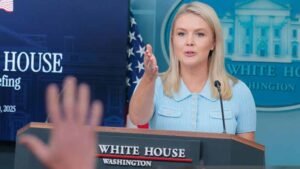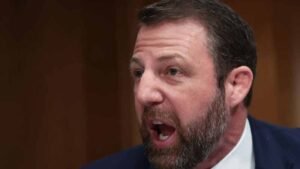
Via/AP
After President Joe Biden’s lackluster performance on the debate stage Thursday night, voices within the Democratic Party are clamoring for a change in leadership ahead of the 2024 presidential race. A chorus of opinions has emerged, urging Biden to step aside and make way for a fresher, more dynamic candidate who could better energize the party’s chances in the upcoming election.
The debate, widely criticized for Biden’s subdued delivery and perceived vulnerability, has sparked intense discussions among prominent political commentators. According to a recent exchange published by The New York Times, columnists Jamelle Bouie, Michelle Goldberg, Patrick Healy, and Bret Stephens deliberated over the ramifications of Biden potentially withdrawing from the race at this juncture.
Goldberg, Healy, and Stephens voiced concerns over Biden’s viability as a general election candidate following the debate performance, advocating for his replacement at the top of the ticket. However, Bouie cautioned against hastily pushing Biden aside, warning that such a move could play into Republican narratives of Democratic disarray and instability.
Drawing parallels to historical precedents, Bouie highlighted the infamous McGovern-Eagleton affair of 1972, where the last-minute replacement of Thomas Eagleton as George McGovern’s running mate ultimately bolstered Richard Nixon’s campaign. He underscored the risks of undermining Biden’s leadership prematurely, suggesting it could weaken the Democratic Party’s electoral prospects.
Regarding Vice President Kamala Harris’s role in a potential leadership reshuffle, discussions turned to her current standing and future prospects. Despite concerns over her approval ratings, Bouie argued that Harris deserved a fair opportunity to step up if Biden were to step down, particularly given her significance to key Democratic constituencies, such as Black voters.
“Choosing a new standard-bearer for the Biden administration might not necessarily yield a better outcome,” Bouie remarked, emphasizing the complexities involved in such a strategic shift. He cautioned against underestimating the challenges of introducing a new candidate into the electoral fray so close to Election Day, drawing attention to the unpredictable nature of political dynamics.
As speculation swirls within political circles, the Democratic Party faces a critical juncture in its path towards the 2024 election. The debate over Biden’s future underscores broader anxieties about leadership and electoral strategy, with implications that could shape the party’s trajectory in the months ahead.
While calls for change intensify, the Democratic Party remains at a crossroads, weighing the potential benefits of rejuvenation against the risks of division and strategic vulnerability. As Biden navigates these pressures, the party’s decision-making process will undoubtedly influence the contours of the upcoming presidential race, shaping the political landscape for years to come.


